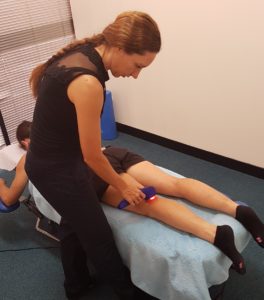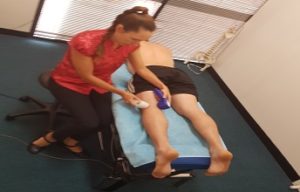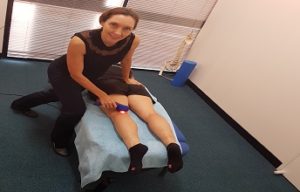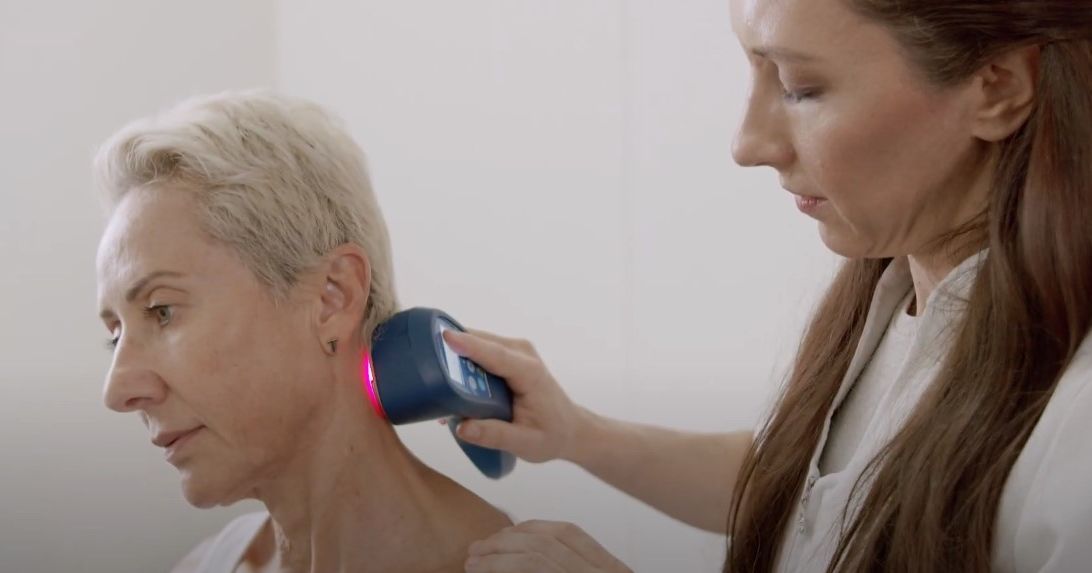One of the most common injuries occurring in the human body, obtained through competitive and high demand sports is an Anterior Cruciate Ligament tear (ACL tear) of the knee. The ACL is one of two major bands stabilising the knee and connects the bones to each other within the knee. ACL injuries are most commonly obtained when a person twists or pivots suddenly in a brisk fashion when running or jumping causing the ligament to sprain or tear. The changing of direction is generally the mechanism of injury usually in runners, gymnasts, soccer, football, netball and basketball.
There are certain signs and symptoms characterised by an ACL tear including:
a) A popping sensation or audible cracking noise
b) Hemarthrosis within the knee
c) Pain and tenderness along the joint line of the knee
d) Joint laxity and an inability to flex and extend the knee without causing pain
e) Unable to walk with pressure upon the knee
The condition can be diagnosed through a clinical history of the patient, however this can often lead to multiple diagnoses. When this is the case, the doctor can use a range of orthopaedic tests to help distinguish an ACL tear from an alternative knee disorder.These orthopaedic tests include:
1. Anterior drawer test- Patient lies on their back with their knee flexed at 90o and the doctor applies a posterior to anterior pull while stabilising the foot to the table. If there’s too much movement in respect to the unaffected knee, ACL pathology most likely.
2. Levers sign- Again lying on their back with legs straight out in front, the examiner contacts the posterior aspect just below the knee and applies an anterior compressive force just above the knee joint looking for a raise of the heel off the table. If no lift, ACL injury present.
3. Apley’s distraction test- Patient lies on their stomach with their knee flexed to 90o, while the examiner applies a distraction force by pulling the leg superiorly whilst stabilising the thigh onto the table and moving the joint passively through internal and external rotation. A positive test will include the patient feeling pain along the joint line on movement.
4. Pivot shift test- Patients lie supine with their leg extended along the table. The examiner applies a lateral-medial force while moving the leg into flexion, observing for a clunk or pain at about 30o of flexion indicating ACL instability.
5. Lachman’s test- The examiner stabilises the distal femur whilst pulling on the proximal tibia to increase joint gapping at the knee. Increased joint laxity with respect to the unaffected knee is a positive sign for ACL tear.
ACL injuries can be graded in a 1-3 format. Grade 1 ACL injuries involve the ligament being mildly damaged and slightly stretched, although is still able to keep the knee joint stable. Grade 2 injuries refer to stretching of the ligament until it becomes loose and refers to a partial tear in the knee joint. Finally grade 3 ACL sprains or complete tear occurs when the ligament has been split into two separate pieces and the knee joint is now unstable.



Treatment for ACL injuries can be in the form of surgery for complete tears or non-surgical procedures including physiotherapy, bracing, Anti-inflammatory medications, conservative care or Cold Laser Therapy for mild-moderate ACL sprains/partial tears.
Cold Laser Therapy utilises modern technology and a non-invasive technique to target the deep underlying tissues and help rejuvenate them. Being non-invasive and cold, the cold laser therapy or low-level laser therapy doesn’t expose the patient to any risks and is extremely cost-effective. Cold laser therapy is used to treat ACL injuries by reducing the inflammation around the joint and promoting blood, oxygen and nutrients to help repair the injured ligament.
The therapy consists of multiple sessions depending on the severity of the injury and generally lasts around 20 minutes with the laser being applied to various different areas around the joint capsule for 3-4 minutes at a time. It’s recommended that the patient seeks multiple treatments of 2-3x per week in order to gain the maximum benefit of the cold laser therapy. ACL injuries are very common among athletes competing in high demand sports typically occurring following a sudden twisting motion.
If you’re experiencing symptoms of a mild or partial ACL tear or have recently received a diagnosis, Cold Laser Therapy (Low-Level Laser Therapy) at Lakeside Laser may help support your recovery. This non-invasive treatment is designed to reduce inflammation, promote tissue repair, and enhance healing—making it a great option for musculoskeletal injuries like ACL tears.
Lakeside Laser is located in Gnangara, WA 6077—central to Perth’s northern suburbs—and we regularly welcome clients from areas including Hillarys, Currambine, Iluka, Inglewood, Yanchep, Wembley Downs, Leederville, and Joondalup.
To speak with our trained Cold Laser and Super Pulsed Laser professional, Dr Linda Schiller, or to schedule an appointment, call us on 0468 429 111 or book via the ‘Book Now’ tab on our website: www.lakesidelaser.com.au. We look forward to assisting you on your road to recovery.



